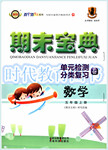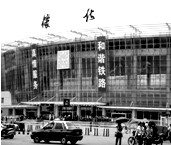题目内容
阅读理解。
Sunday is more like Monday than it used to be. Places of business that used to keep daytime "business
hours" are now open late into the night. And on the Internet, the hour of the day and the day of the week
have become irrelevant (不相关的). A half century ago in the United States, most people experienced dividing
lines between days of rest and days of work, school time and summer time. Today the boundaries (界限) are
still present, but they seem not clear.
The law in almost all states used to require stores to close on Sunday; in most, it no longer does. It used
to keep the schools open in all seasons except summer, in most, it still does. And whether the work week
should strengthen (加强) its legal limits (法律限制), or whether it should become more "practical" is often
discussed. How should we, as a society, arrange our time? Should we go even further in relaxing the
boundaries of time until we live in a world in which every minute is much like every other?
These are not easy questions even to ask. Part of the difficulty is that we seldom care about the "law of
time" even when we meet it face to face. We know as children that we have to attend school a certain number
of hours, a certain number of days, a certain number of years - but unless we meet the truant officer (督学),
we may well think that we should go to school due to social custom( 习惯) and parents' demand (要求) rather
than to the law. As adults we are used to "extra (额外的) pay for overtime working", but less used to the fact
that "overtime" is a matter of legal definition. When we turn the clock forward to start daylight-saving time,
have we ever thought to ourselves; "Here is the law in action"? As we shall see, there is a lot of law that has
great influence on how to arrange and use time: compulsory education law, overtime law, and daylight-saving
law-as well as law about Sunday closing, holidays, being late to work, time zones, and so on. Once we begin
to look for it, we will have no trouble finding a law of time to examine and assess (评价).
hours" are now open late into the night. And on the Internet, the hour of the day and the day of the week
have become irrelevant (不相关的). A half century ago in the United States, most people experienced dividing
lines between days of rest and days of work, school time and summer time. Today the boundaries (界限) are
still present, but they seem not clear.
The law in almost all states used to require stores to close on Sunday; in most, it no longer does. It used
to keep the schools open in all seasons except summer, in most, it still does. And whether the work week
should strengthen (加强) its legal limits (法律限制), or whether it should become more "practical" is often
discussed. How should we, as a society, arrange our time? Should we go even further in relaxing the
boundaries of time until we live in a world in which every minute is much like every other?
These are not easy questions even to ask. Part of the difficulty is that we seldom care about the "law of
time" even when we meet it face to face. We know as children that we have to attend school a certain number
of hours, a certain number of days, a certain number of years - but unless we meet the truant officer (督学),
we may well think that we should go to school due to social custom( 习惯) and parents' demand (要求) rather
than to the law. As adults we are used to "extra (额外的) pay for overtime working", but less used to the fact
that "overtime" is a matter of legal definition. When we turn the clock forward to start daylight-saving time,
have we ever thought to ourselves; "Here is the law in action"? As we shall see, there is a lot of law that has
great influence on how to arrange and use time: compulsory education law, overtime law, and daylight-saving
law-as well as law about Sunday closing, holidays, being late to work, time zones, and so on. Once we begin
to look for it, we will have no trouble finding a law of time to examine and assess (评价).
1. What does "in most, it no longer does." in Paragraph 2 mean?
A. Most states require stores to be open on Sunday now.
B. Most states do not require stores to close on Sunday now.
C. Stores are no longer open on Sunday in most of the states now.
D. Stores no longer close on Sunday in most of the states now.
B. Most states do not require stores to close on Sunday now.
C. Stores are no longer open on Sunday in most of the states now.
D. Stores no longer close on Sunday in most of the states now.
2. The writer's questions in Paragraph 2 are to introduce the fact that people _____.
A. fail to make full use of their time
B. enjoy working overtime for extra pay
C. do not care about the law of time
D. welcome practical working hours
B. enjoy working overtime for extra pay
C. do not care about the law of time
D. welcome practical working hours
3. According to the passage, most children go to school because they _____.
A. need to learn knowledge
B. have to listen to their parents
C. need to make good friends
D. have to practice the law
B. have to listen to their parents
C. need to make good friends
D. have to practice the law
4. What is the main idea of the passage?
A. Our life is decided by the law of time.
B. How to arrange time is not worth discussing.
C. New ways of using time change our society.
D. Time arrangement is decided by social customs.
B. How to arrange time is not worth discussing.
C. New ways of using time change our society.
D. Time arrangement is decided by social customs.
1-4 BCBA

练习册系列答案
 期末宝典单元检测分类复习卷系列答案
期末宝典单元检测分类复习卷系列答案
相关题目
| 阅读理解。 | ||||||||||||||||||||
| Ten years ago, most Chinese teenagers chose politicians (政治家) as their idols. Who do they admire today? According to a survey released by Beijing Normal University, their top three choices are their father, their mother and Jay Chou. Who are Teens' readers' heroes? Let's have a look. Jiang Yiling, 14, Wuhan: My idol is my mom. When I was young I had a surgery (手术) on my leg and couldn't walk for a long time. My mother left her job to take care of me. She carried me back and walked up and down the stairs every day. My mother is a woman with a powerful heart. Lin Yijian, 12, Xiamen: I admire Arnold Schwarzenegger (阿诺德·施瓦辛格). I love his movies, in which he often plays a good guy beating bad people. His muscles (肌肉) also add to his charm (魅力). And then he became the governor of California. I hope to live a life like his. Ma Huilin, 14, Anshan: I appreciate Taiwanese singer Jimmy Lin (Lin Zhiying). He sings well and he is also a funny guy. I admire my English teacher, too. She speaks very good English. My dear parents are also my idols. My father is an excellent swimmer and my mother is good at math. Chen Shengsheng, 14, Shanghai: I admire Su Shi, a talented writer in ancient China. Reading Su's poems and other writings, I see a person with a noble (高贵的) personality and brilliant talent. I appreciate his attitude towards life. He suffered setbacks (挫折) but never gave up. 任务:请阅读上面短文,根据短文内容完成下面表格中的有关信息。 | ||||||||||||||||||||
|
| 阅读理解。 | |
Su Hua is studying at Cambridge, UK. She has bought a bicycle and is worried about security ( 安全). Her friend, Kate, found this article and sent it to her.
| |
| 1. Which part of the text gives you information on how to lock up your bicycle when you leave it? | |
| A. Locks. B. Marking. C. Registration. D. Basic Security. | |
| 2. The underlined phrase “act as a deterrent to a thief” means ______. | |
| A. help you recognize your bike B. help the police find your bicycle C. stop someone stealing your bicycle D. stop you worrying about your bike | |
| 3. The article advises you to keep a record of your bicycle _______. | |
| A. in the bike shop and your computer B. in the police station and a security company C. in a security company and your university D. by yourself and in a security company | |
| 4. The main purpose of this article is _________. | |
| A. to tell you what to do if your bicycle is stolen B. to suggest ways of keeping your bicycle safe C. to give you advice on where to buy a good lock D. to say why you shouldn’t keep your bicycle in a quiet place |
| 阅读理解。 | ||
的) and social development in western Hunan. Furong Lou in Qiancheng is more than 40 km away from Huaihua. It was built in memory of Wang Changling, a famous poet (诗人) in Chinese history. It is an important cultural relics in Hunan. Another historical place is the Zhijiang Memorial Site (受降坊). It is 3.5 km east of Zhijiang and it is also the home of the Kuomintang air force. You can see many important pictures and materials in the exhibition hall. They tell us the history of the anti-Japanese War. Many famous people, such as Su Yu, Teng Daiyuan and Xiang Jinyu were born in the city area. They were active in Chinese revolution in their early days and their former residences (故居) become important places to have education on revolutionary tradition. | ||
| 1. Huaihua City was built more than 30 years ago because of _____. | ||
| A. the building of the two railways B. its good ecological environment C. its history and culture | ||
| 2. The underlined word "preserved" can be replaced (替换) by _____. | ||
| A. built B. chosen C. kept | ||
| 3. The Zhijiang Memorial Site was built in order to _____. | ||
| A. attract (吸引) visitors to Zhijiang B. offer people a place to relax themselves in C. celebrate the victory of the anti-Japanese War | ||
| 4. How many famous people are mentioned in the text? | ||
| A. Three. B. Four. C. Five. | ||
| 5. The aim of writing the text is to _____. | ||
| A. describe the beautiful future of Huaihua B. make people know more about Huaihua C. make a plan for the construction of Huaihua |
